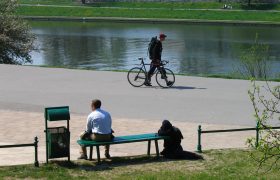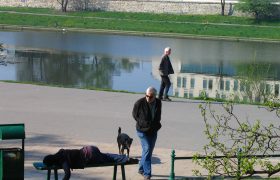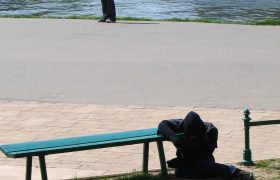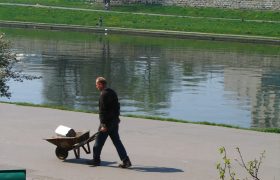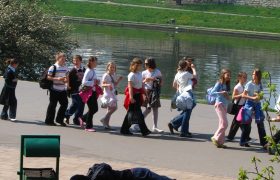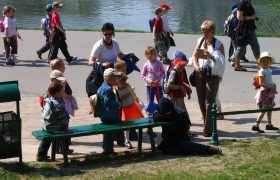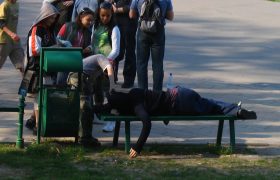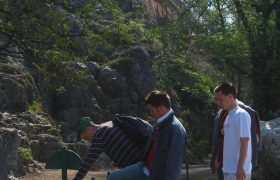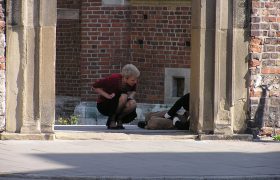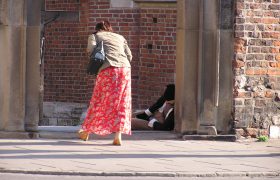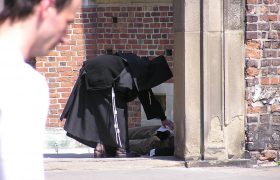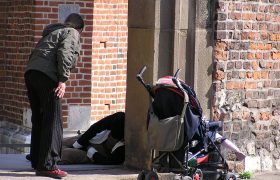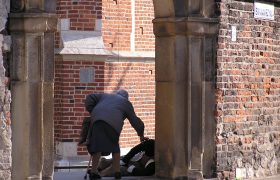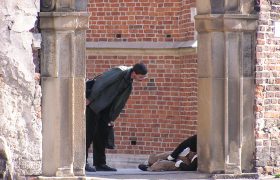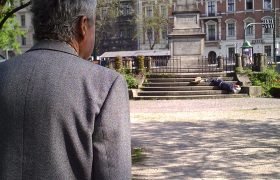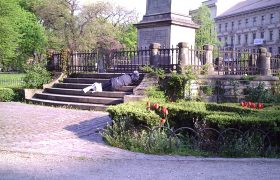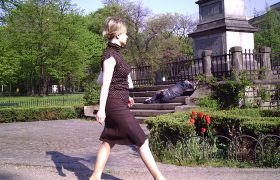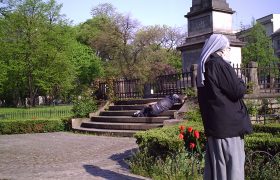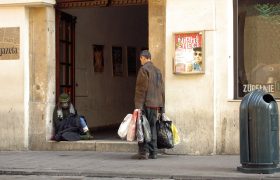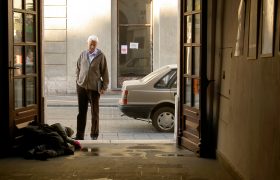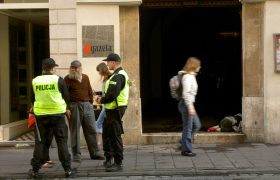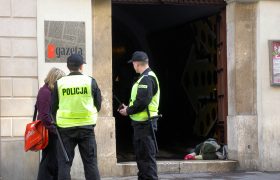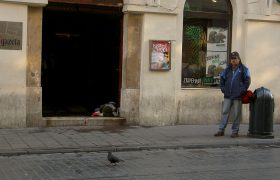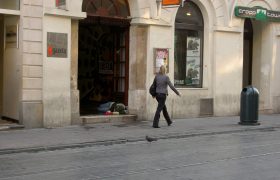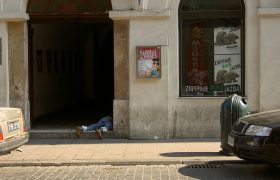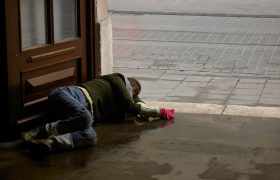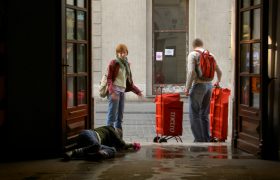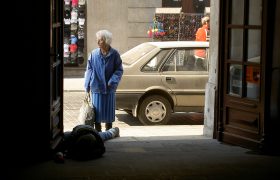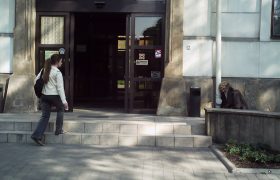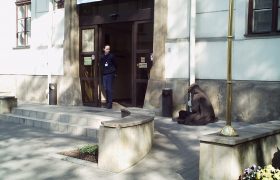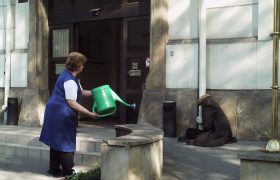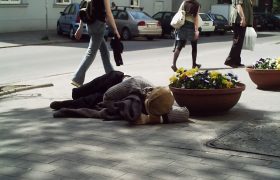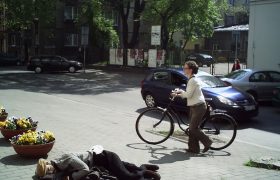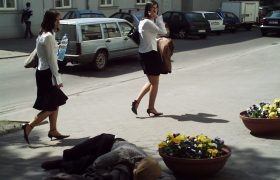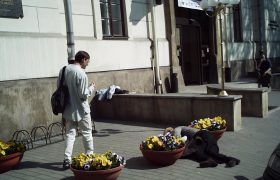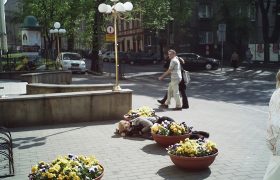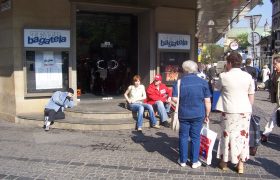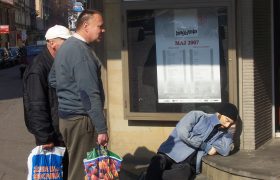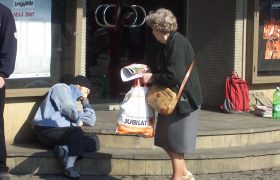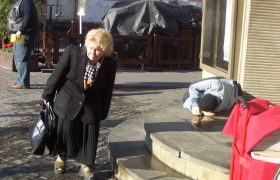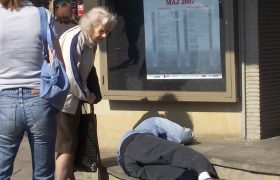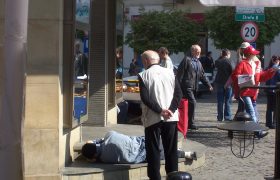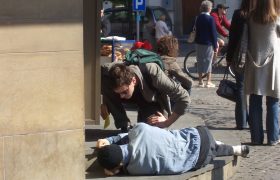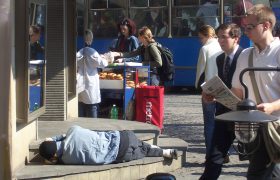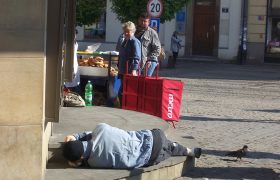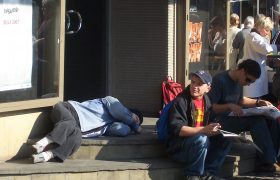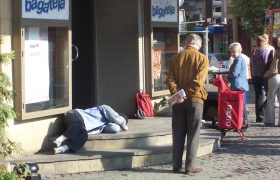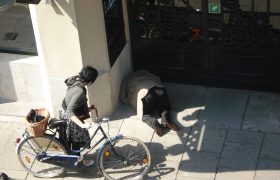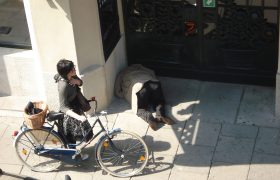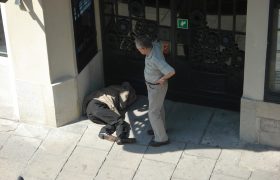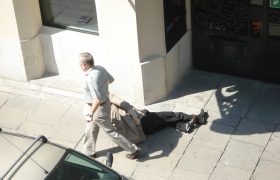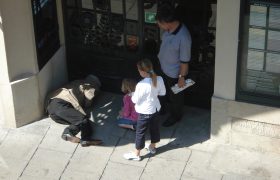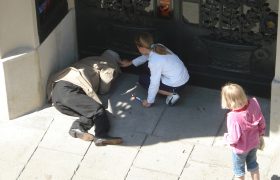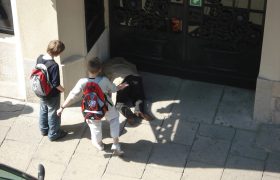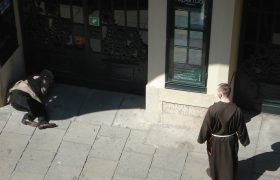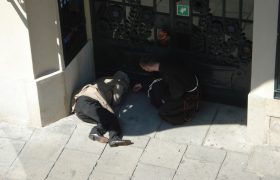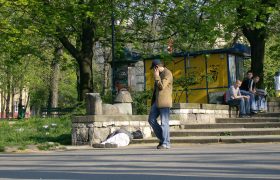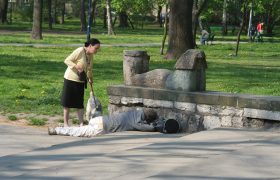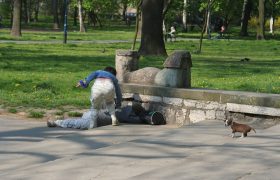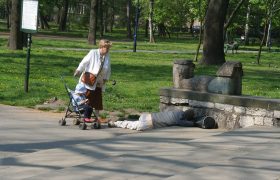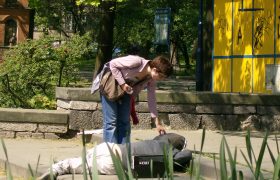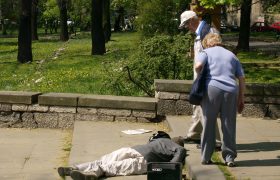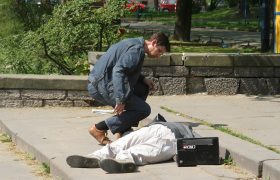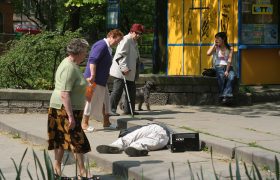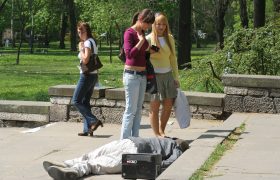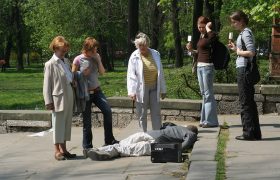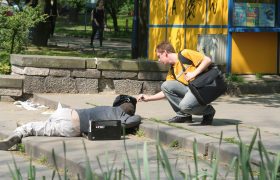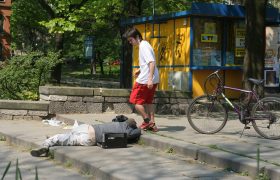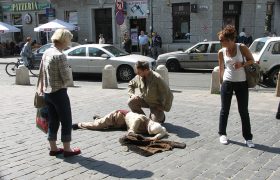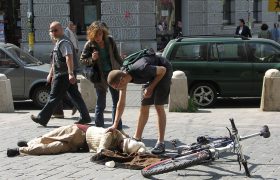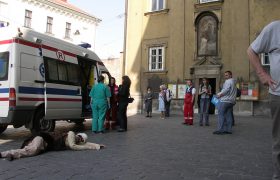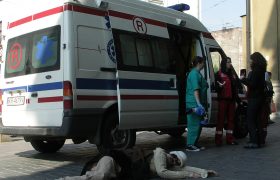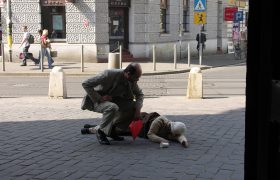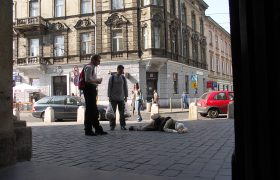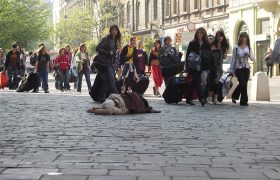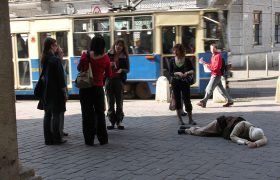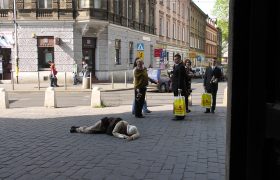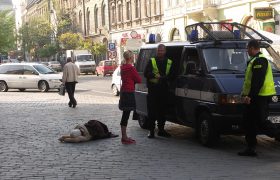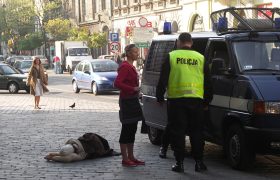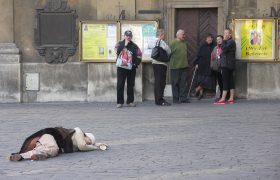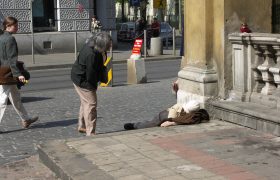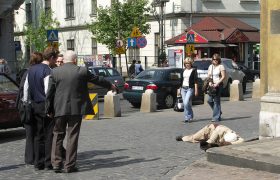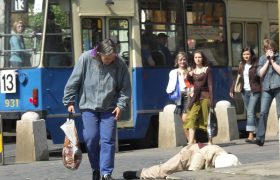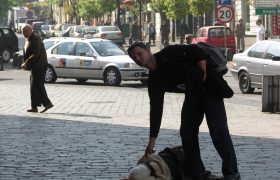April 28th 2007
Krakow – Poland
On April 27th, 2007, the last edition of the Proyecto Filoctetes took place in the streets of the City of Krakow. Invited by the Krakowskie Reminiscencje Teatralne, curated on that occasion by Magda Grudzinska, Emilio García Wehbi and the project’s artistic team organize a seminar with young local artists on the days before the action. The urban intervention took place from 9 am to 3 pm. The experience concluded on April 29th with a documental exhibition and a public debate at the seat of the Polish festival.
Lemnos in Krakow
April 28th 2007. Kracow, Poland
Krakowskie Reminiscencje Teatralne
Curator Magda Grudzinska
Concept & Creation: Emilio García Wehbi
Documentation & Production: Maricel Alvarez
Design of puppets: Norberto Laino
Assistant: Julieta Potenze
Producer (Krakowskie Reminiscencje Teatralne Festival): Marta Kuzmiak
Workshop participants
Karolina Banachowicz, Monika Bogacz, Jerome Bolan, Magda Budek, Ewa Cenowa, Ela Dominiak, Alicja Dulkovska, Agata Dutkowska, Anna Herbut, Agnieszka Jaworska, Magda Kasprzyka, Magdalena Krol, Mateusz Lewczuk, Dominika Mysiawp, Agnieszka Munk, Filip Nycsy, Zuzana Oles, Joanna Pec, Malgorzata Piotrowska, Katarzyna Prusik, Gosie Radkiewicz, Dominik Stanislawski, Piotr Swies, Marcin Turecki, Matgorzata Warsicka.
Locations
- Wawel Dragon
- Theatre Kameralnego
- Corpus Christi Basilica, Kazimerz
- Gazety Wyborczej Newspaper
- Theatre Starego
- Monument Straszewskiego
- Theatre Bagatela
- St Mary’s Basilica
- Wojewódzka Public Library
- Krakowska Philharmonic
- Krakowskiego Square
- Cudowne Lata Bar
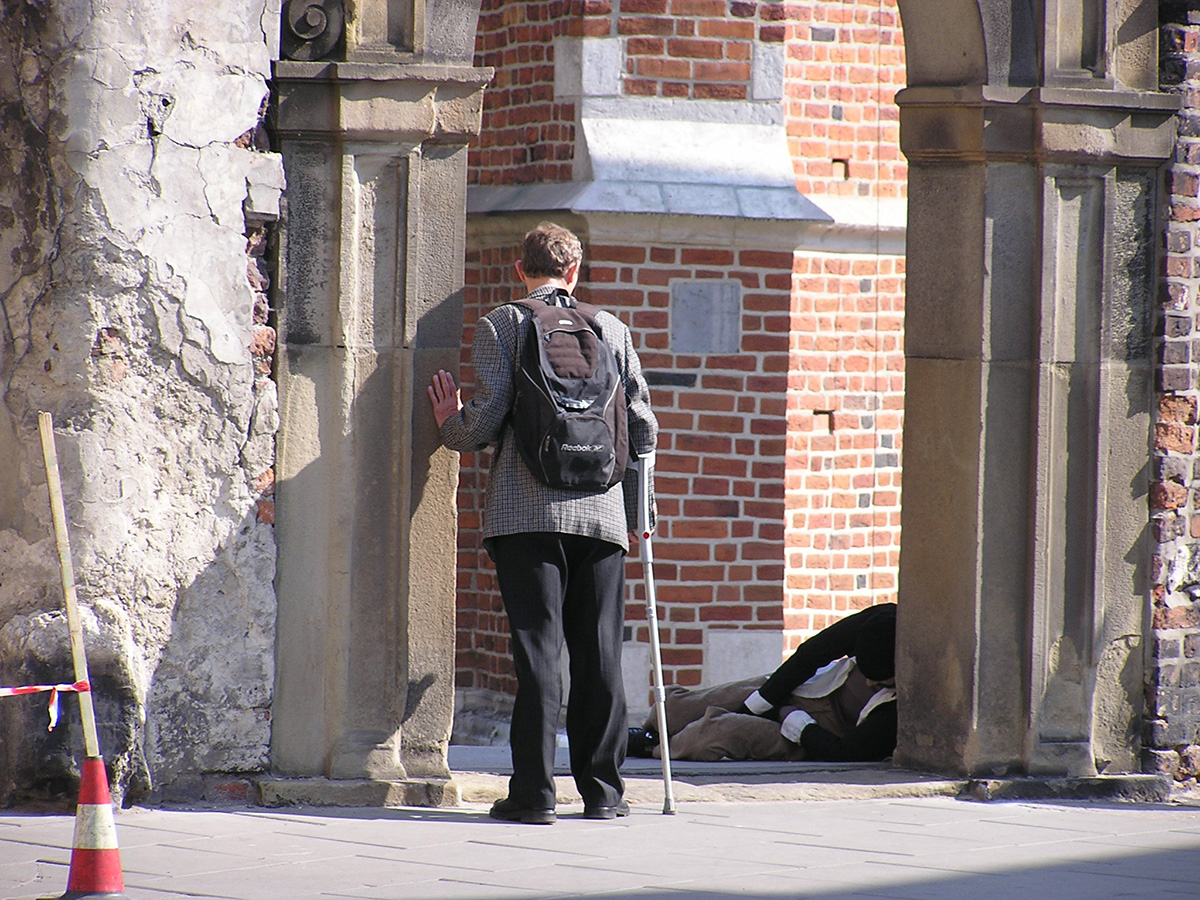
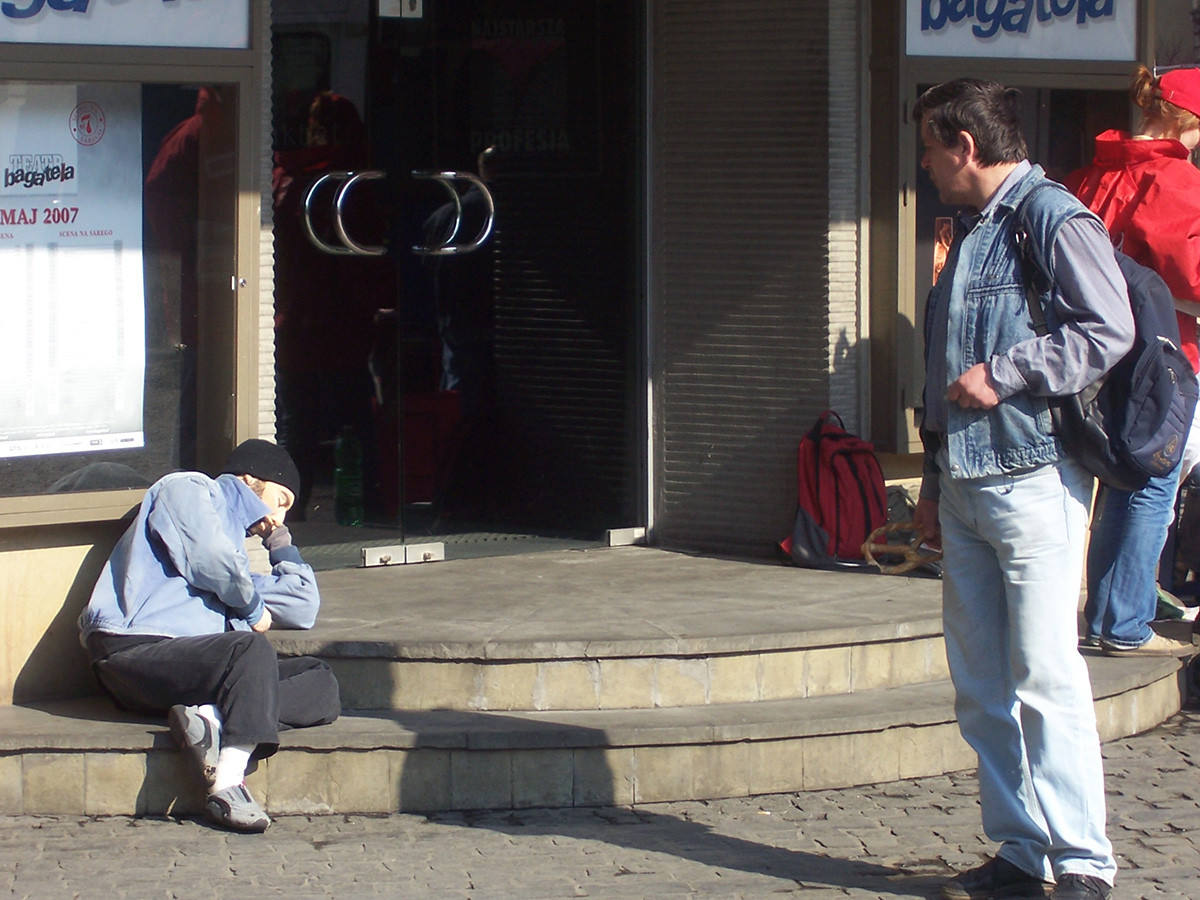
“Filoctetes Project unveils, quoting Marta Zatonyi, the ugly face of a society that pretends to be beautiful.“
(Jesús Codina Oria, "Filoctetes Project by Emilio García Wehbi: Reactions to the ugly and obscene in a critical experience of Relational Art"
“I’m being asked whether this is art, and I wonder what is art. Art is metaphor in order to question ourselves, to seek desperately, reveal the secret of our specie here on earth, of our finiteness and condemnation”.
(Emilio García Wehbi, "Manifesto II (The day after)")
“When the Viennese Actionists mutilated their own bodies, they were trying, among other things, to show opposition towards the establishment and its manipulation of the body. In Argentina, in all the so-called third world, the human body is worth nothing: it is starving meat, mutilated and lacerated day after day. The puppet is a visible expression of a certain reality. Filoctetes is an artistic event that faced on this problem and politically intervenes it. The puppet meant an attack to the glance; a disturbance to an order in which the body in the street, the real indigent, has already been incorporated by the silence of denial.”
(María Teresa Constantin, "Suffering bodies. Emilio García Wehbi and Philoctetes: Lemnos in Buenos Aires")
